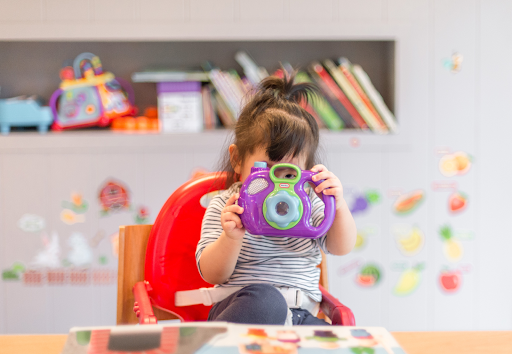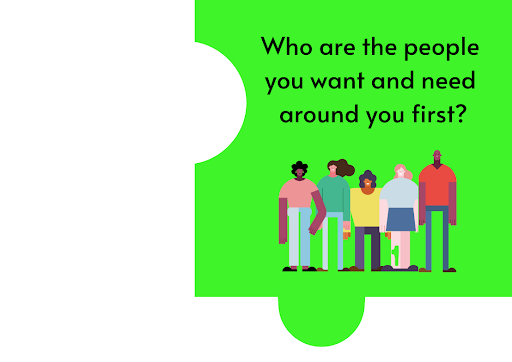Perinatal Depression and Anxiety Awareness Week
November 2023
Photo by Tanaphong Toochinda on Unsplash
Our kids have these table placemats, I think I got them at Kmart, and it’s a bunch of conversation starter questions with these cute picture prompts. They’re brightly coloured, the questions are fun, and they really are helpful when sparking conversations at the dinner table. As a mother of young boys, who spends more time in conversation with her children than with anyone else, these were the first things I thought of when I read the theme of the Perinatal Depression and Anxiety week - Connect through Conversations.
So, I thought I’d make my own version of this placemat specific to this week in health. It might offer some cues for direct conversations and provide some prompts for etching out some plans that may potentially help a new parent, not just this week, but across the roughly 250 weeks that make up the perinatal period that is now becoming more broadly recognised and respected regarding the mental health of parents and children from conception until the child(ren) are 4 years old.
If you are looking for a fantastic resource developed precisely to facilitate a wide range of meaningful conversations very specific to the perinatal period you may find the Parenting Conversation Cards created by the WA Centre for Perinatal Mental Health and Parenting Support particularly helpful.
For extensive accessible resources for Perinatal Depression and Anxiety Awareness Week please go right to PANDA: Perinatal Anxiety and Depression Australia.
Who are the people you want and need around you first?
Who you are going to need and want around you, at this special time, is deep down something only you will know. The idea of help comes in many different styles, but what and who are most helpful to you, and those you feel most comfortable having closest at this intense time, is vital to recognise and respect. To be negotiating additional relationship stressors can negatively impact our mental and physical health.
You may choose to have individual conversations with the small group of people you want closest to you, or you may like to gather them together as a group. You may come together, while you are pregnant, to share with those who really care what you are concerned about, and explore what you think you might need when your baby comes. Your closest circle is then more prepared to be there for you in the best ways, because you’ve had a chance to let them know what appropriate support looks like to you.
Finding even just a few close and supportive people, for many of us, may not feel possible. In a recent scoping review, that casts a wide net looking at gaps in research, they outline the prevalence of loneliness in pregnant and post-partum people and parents of children aged 5 years or younger as between 32 and 100%. When we ponder this question about who is there to offer us support it may highlight this. PANDA talks about ‘Building your community of care’ and they start by letting us know that many of us can feel alone, isolated, and we add to this stress sometimes by perhaps feeling like we are needy or somehow a burden to others if we seek support. They go on to reassure that ‘You’re not a burden. You’re someone who deserves friendship, connection and support’…and offer ideas on how to build our community of care.
What mental health professionals am I going to get to know?
Through your pregnancy you may feel like you are checked up on a lot…Obstetric GP visits, time with your midwife, ultrasounds, blood tests…a lot of ‘just wee in that cup’, ‘let’s just take that blood pressure again’, and ‘why don’t we jump on the CTG for an hour or so and we’ll keep an eye on things’. Gains made in infant and mother mortality, because of advances in and access to medical testing and technologies, are significant. Since 1990 child and maternal deaths have decreased by 50% globally. Health check-ups save lives.
However, looking after our mental health is different to looking after our physical health. Mental health check-ups save lives too. How we feel comfortable exploring our mental health supports differs between individuals. Checking in with your GP or Psychiatrist may lead to the two of you making a Mental Health Treatment Plan and you can use this to access professional services that best suit you and your goals. Mental Health Service providers under these plans include: Clinical Psychologists; Registered Psychologists; Social Workers and Occupational Therapists. Some people may take the first steps by calling a specific service or a Help Line. Other individuals may investigate options and resources online, or may attend virtual information sessions or complete supported online programs. We are all different.
The mental health professionals you get to know may include more than one health professional and come from a variety of different professional backgrounds. As you develop your therapeutic relationship with your treatment team you will develop a toolkit of useable resources and skills you can be putting into practice every day. Empowering tools and skills like these that helpfully ripple far beyond the perinatal period. These tools for mental health can be used effectively for yours, and your children’s, whole life.
Where can I call, or text, or reach out to, when I feel like I can’t talk to anyone who knows me?
In an Emergency - 000
If you, or someone you know, are in danger or thinking about harming yourself or others call Triple Zero (000) immediately.
Beyond Blue - 1300 22 4636
Beyond Blue is for anyone feeling anxious or depressed. Provides 24/7 telephone support. Online chat and email services are also available.
Lifeline - 13 11 14
Lifeline is for anyone having a personal crisis. Provides 24/7 telephone support. Online chat and SMS services are also available.
Mental Health Emergency Response Line - 1800 676 822
Mental Health Emergency Response Line (MHERL) is a 24-hour telephone service for people in the Perth metropolitan area experiencing a mental health crisis. It provides contact with a trained mental health clinician who can provide: Mental health assessment; Crisis support, crisis planning and brief intervention; Mental health system navigation; Mental health information and advice; Referral to a mental health or emergency service when more than telephone support is required. The service aims to keep individuals safe during a mental health crisis by connecting them with appropriate support services. MHERL is available for: Individuals experiencing a mental health crisis who feel that they need urgent assistance; Families or carers of people with a mental illness; Members of the general public who witness a mental health crisis and need assistance; Health professionals; Community welfare service providers.
Open Arms - 1800 011 046
Open Arms offers counselling for veterans and their families. Provides 24/7 telephone support.
QLife - 1800 184 527
QLife provides anonymous and free LGBTI peer support and referral for people in Australia wanting to talk about sexuality, identity, gender, bodies, feelings or relationships. Provides 24/7 telephone support. Online chat also available.
Suicide Call Back Service - 1300 659 467
Suicide Call Back Service is for anyone thinking about suicide. Also provides support for people who are worried about others, or for those that have lost people through suicide. Provides 24/7 telephone support. Online chat and video chat also available.
PANDA – 1300 726 306
PANDA: Perinatal Anxiety and Depression Australia supports the mental health of parents and families during pregnancy and in their first year of parenthood. PANDA offer a national support line that is available Monday – Friday from 9:00am – 7:30pm and Saturdays from 9:00am – 4:00pm AEST, and is staffed by trained and experienced counsellors and volunteers. PANDA also provides: an intensive care and counselling program; health care provider training and free secondary counselling; digital resources and community education.
The GIDGET Foundation – 1300 851 758
The GIDGET Foundation Australia is a not-for-profit organisation that exists to support the wellbeing of expectant and new parents to ensure they receive timely, appropriate and specialist care. The GIDGET Foundation is not able to provide crisis support. They do provide: a national telehealth service; an emotional wellbeing screening program; a virtual village support group; education, research and online tools.
The WA Centre for Perinatal Mental Health and Parenting Support – (08) 6496 0460
The WA Centre for Perinatal Mental Health and Parenting Support (WACPPS) provides care for the mental health of women and families in Western Australia from the time of conception, during pregnancy and in the first four years of parenting and beyond. They provide: pregnancy and parenting counselling; family therapy; and classes and events.
Perinatal Mental Health Week
Perinatal Mental Health Week is an online platform specific to this week on the health calendar. It provides: links to supports and resources; posters and other resources for social media; facts sheets and a newsletter.
These direct questions may be the spark for deeper, highly valuable, and incredibly important conversations now and through the early years of your children’s lives. If you’re still curious about light-hearted conversation starters for your Family too, I believe there is some profound value in the way we answer these sorts of questions as well. My kids favourites from their placemats are: Tell us about the funniest thing you saw today; What superpowers would you choose, and why? and Tell us about your favourite time of day…and each time I answer I try and make the space to pause, really think, and my answers change all the time.
Perth Brain Centre has a special interest in state-of-the-art brain therapies for brain-based disorders, including anxiety and depression. You can find out more about the services offered in any way you are comfortable - watch, read, call or email - any time that feels right.
About the author - Ms. Emily Goss (Occupational Therapist, Senior Clinician, The Perth Brain Centre).





